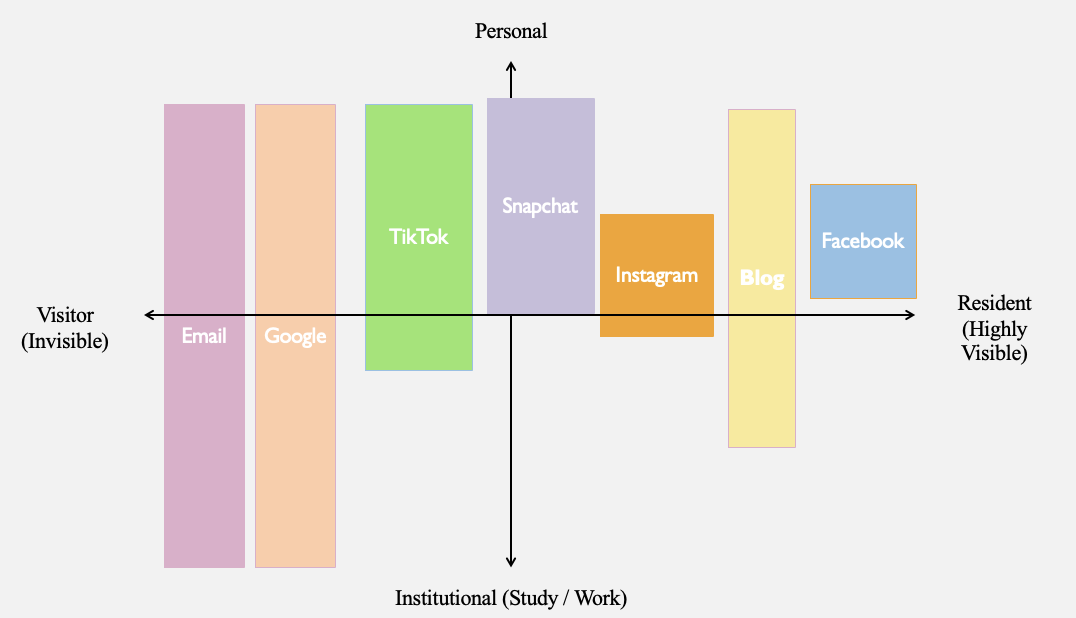
Digital identity: Personal vs Professional
When it comes to how I show up online, I try to keep things pretty consistent between my personal and professional spaces. I’ve learned that the two are more connected than we often realize. Even on my personal accounts, I make an effort to keep things somewhat professional because you never know who might come across them. Whether it’s a future employer or a family member, I want to feel confident about what they see.
That said, I do keep a bit of boundary between the two. I’m intentional about what I share and where I share it. My personal platforms are more about staying connected with friends and family, posting everyday moments, or sharing fun updates. My professional presence, on the other hand, is where I focus on things like academic achievements, interests, or anything that reflects who I am in work or school setting.
Setting these boundaries has made me more mindful of my digital footprint. Social media moves fast, but the things we post can stick around far longer than we think. Something that feels small or harmless now could come back years later and not always in a good way. That’s why I try to approach my online presence with a mix of authenticity and awareness.
Digital Visitor and Resident Map
Thinking about which platforms I’m a “Visitor” on and which I’m a “Resident” on really made me pause because it’s not always a fixed thing. My habits shift all the time. One month, I might be super active on a platform, and the next, I barely open it. It really depends on what’s going on in my life and what I need at the time.
Right now, I’d say I’m a Resident on platforms like TikTok, Google, email, and YouTube. These are the spaces I use consistently and actively engage with—whether it’s searching for information, responding to messages, or just keeping up with trends. On the flip side, platforms like Snapchat, Instagram, and Pinterest feel more like Visitor territory for me. I check in occasionally, but I’m not deeply involved or creating content there regularly
It’s interesting to see how this balance changes, and I wouldn’t be surprised if some of these roles flip in the future depending on how I use these tools in my personal, academic, or professional life.
Resident Map

This map illustrates how visible I am on each platform and helps differentiate whether I use them primarily for recreational purposes or for academic and professional tasks. It gives a clearer picture of how I engage with different spaces showing which platforms I use casually to connect with friends and family, and which ones I rely on for research or work-related activities.
One part of the map that will most likely change over time is TikTok, especially as it becomes more integrated into companies and professional settings. I believe that in the future, I’ll be using TikTok more for work-related purposes than for recreational use.
Theories of Personalized Learning
When it comes to learning I’ve found that I retain information much better when I’m actively involved doing something with material rather than just reading about it. That kind of hands-on engagement helps the information really stick with me, which is why I connect a lot more strongly with constructivist learning style.
I’ve also always been a visual learning. Seeing how something works or creating it myself makes the learning process feel more concrete and meaningful. That’s where personalized learning really helps. It allows me to build on my own strengths, explore topics in a way that makes sense to me, and move at my own pace without feeling rushed or restricted.
In the end, personalized learning keeps me motivated and helps me reach my goals because it doesn’t rely on a fixed learning model. Instead, it offers flexibility and adapts to how I learn best which makes all the difference.
Privacy, Surveillance, and Digital Footprint Awareness
I’ve always been mindful of my digital footprint, especially because my parents taught me early on that anything posted online lasts forever. To protect my privacy, I stick to not sharing anything I wouldn’t want a future employer or teacher to see. Understanding how our data is tracked helps me make smarter choices about what I share and where. It all comes down to thinking before I post and making sure my digital footprint truly reflects who I want to be.
Leave a Reply